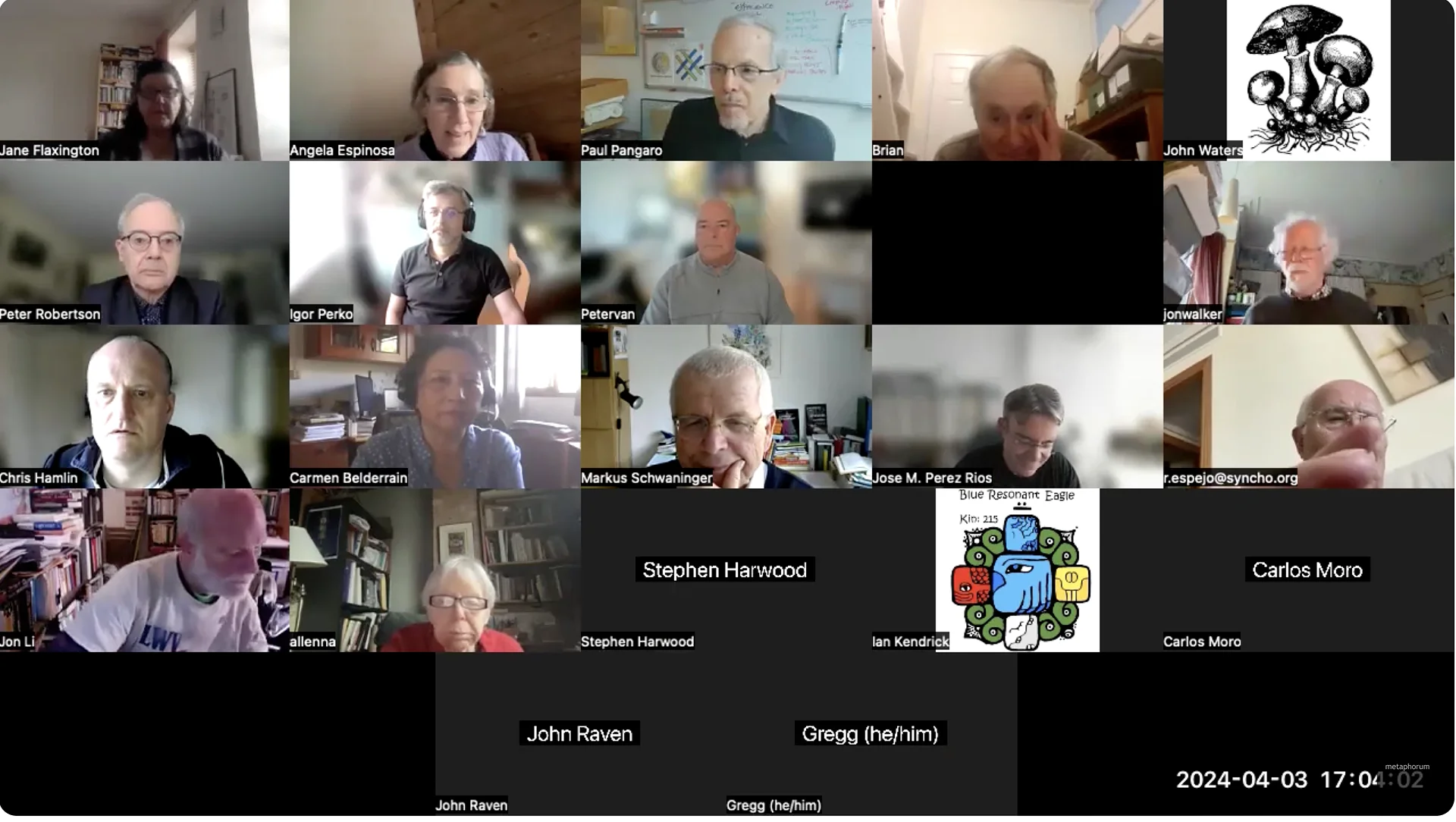
Foreshadowing the disasters of the Anthropocene, in the late 1960s Gregory Bateson developed a cybernetic analysis of the environmental crisis which was then starting to be recognised. He argued that its roots lay in dualist fantasies of control of nature which inevitably produced unintended and sometimes catastrophic spin-offs—Silent Spring. The implication Bateson drew was that we need to think differently, non-dualistically. We have to understand that we are not the masters, not in control. But thinking is not so much the problem as acting. Our actions, not our thoughts, were killing the songbirds, exterminating whole species and filling the atmosphere with greenhouse gases. In this talk I therefore want to explore a distinctively cybernetic pattern of acting in the world.
Taking as my example adaptive attempts to restore the ecosystem of the Colorado River, I seek to map out a stance in the world that I call acting with nature, in contrast to our usual stance of acting on it—in Heideggerian terms a stance of poiseis rather than enframing—characterised by an experimental attunement to nature’s emergent agency—finding out what natural systems want to do and finding ways to get along with that. Acting as if we are indeed part of a world which we cannot control but are swept up in. I discuss the exploratory phase of acting-with as the staging of a dance of human and nonhuman agency, with a dynamically regularised choreography of agency as a possible endpoint.
I emphasise the performative skeleton of adaptive management (and of the style of cybernetics I have written about before): it is primarily about doing things in the world, not anything cognitive: knowledge, calculation, science. In that sense, my example outlines a way of ‘doing without science,’ a different paradigm from modernity. But going one step further, we can note the ancillary role of scientific modelling in our example, which I try to understand along the lines of Stafford Beer’s remarks in 1968 on ‘continually aborting’ corporate plans.
Given time, I can mention other examples of cybernetic acting-with, including the Room for the River project in western Europe, an approach to ‘natural farming’ developed in Japan, Aboriginal techniques of fire-control in Australia, and Amazonian animism. Though not an immediate antidote to the Anthropocene, I think these are the sorts of practices that can in time chip away at it from below.
Speaker Bio
Andrew Pickering completed a PhD in particle physics before moving into science and technology studies, which he taught for many years at the University of Illinois at Urbana-Champaign, before returning to England in 2007 and joining the University of Exeter, where he is now professor emeritus of sociology and philosophy. His research focusses on couplings of the human and the nonhuman. He is the author of Constructing Quarks: A Sociological History of Particle Physics, The Mangle of Practice: Time, Agency, and Science and The Cybernetic Brain: Sketches of Another Future. He is currently completing a book on our relations with nature and the environment.
